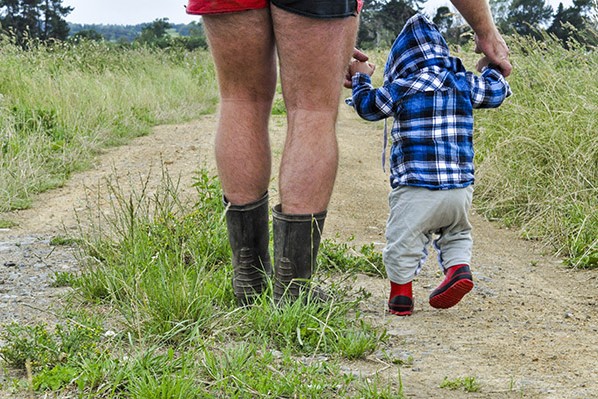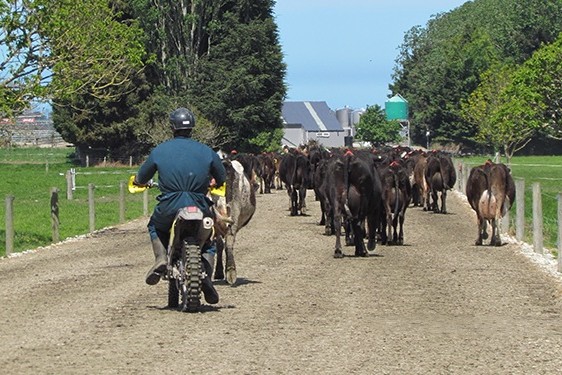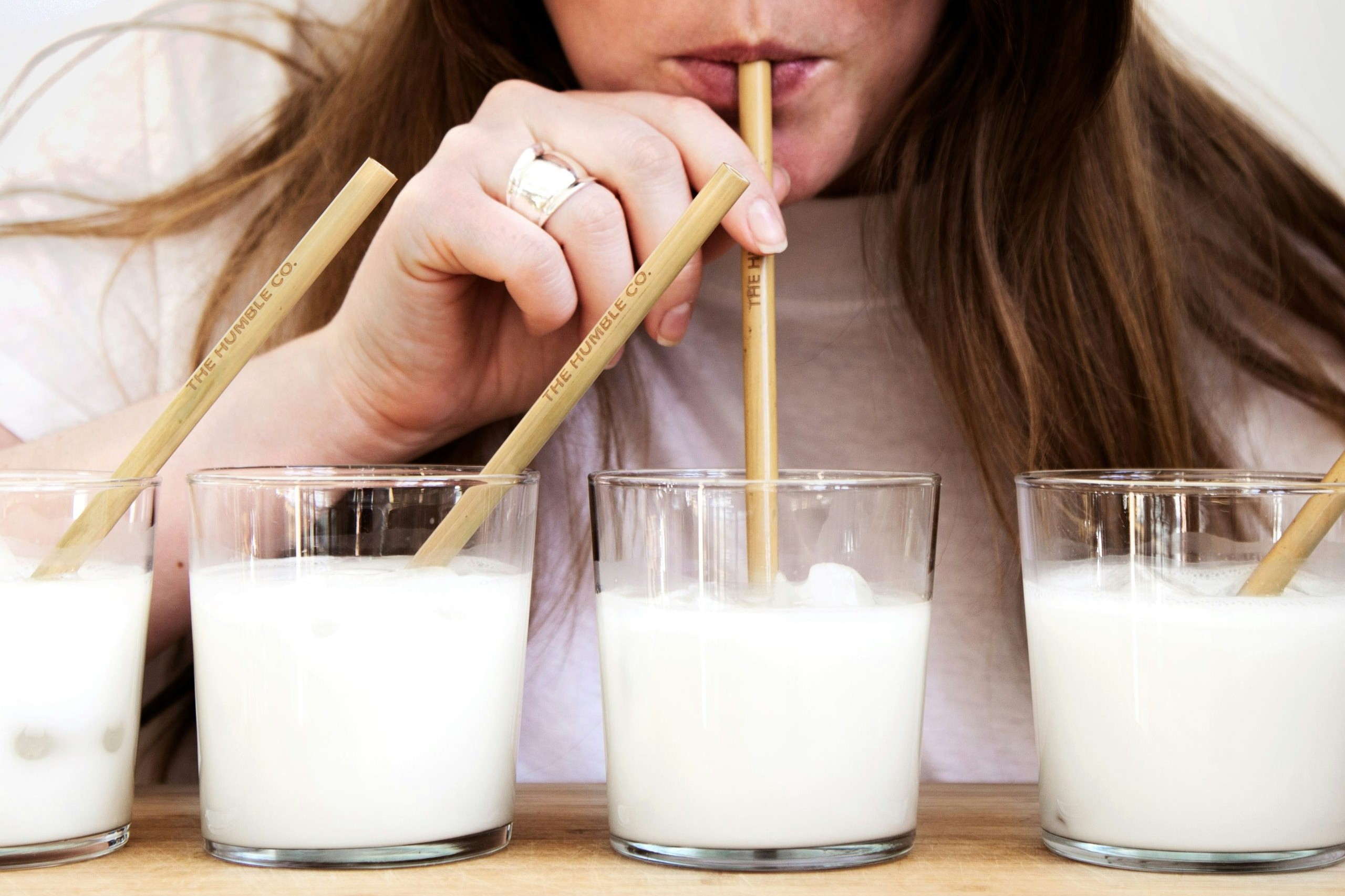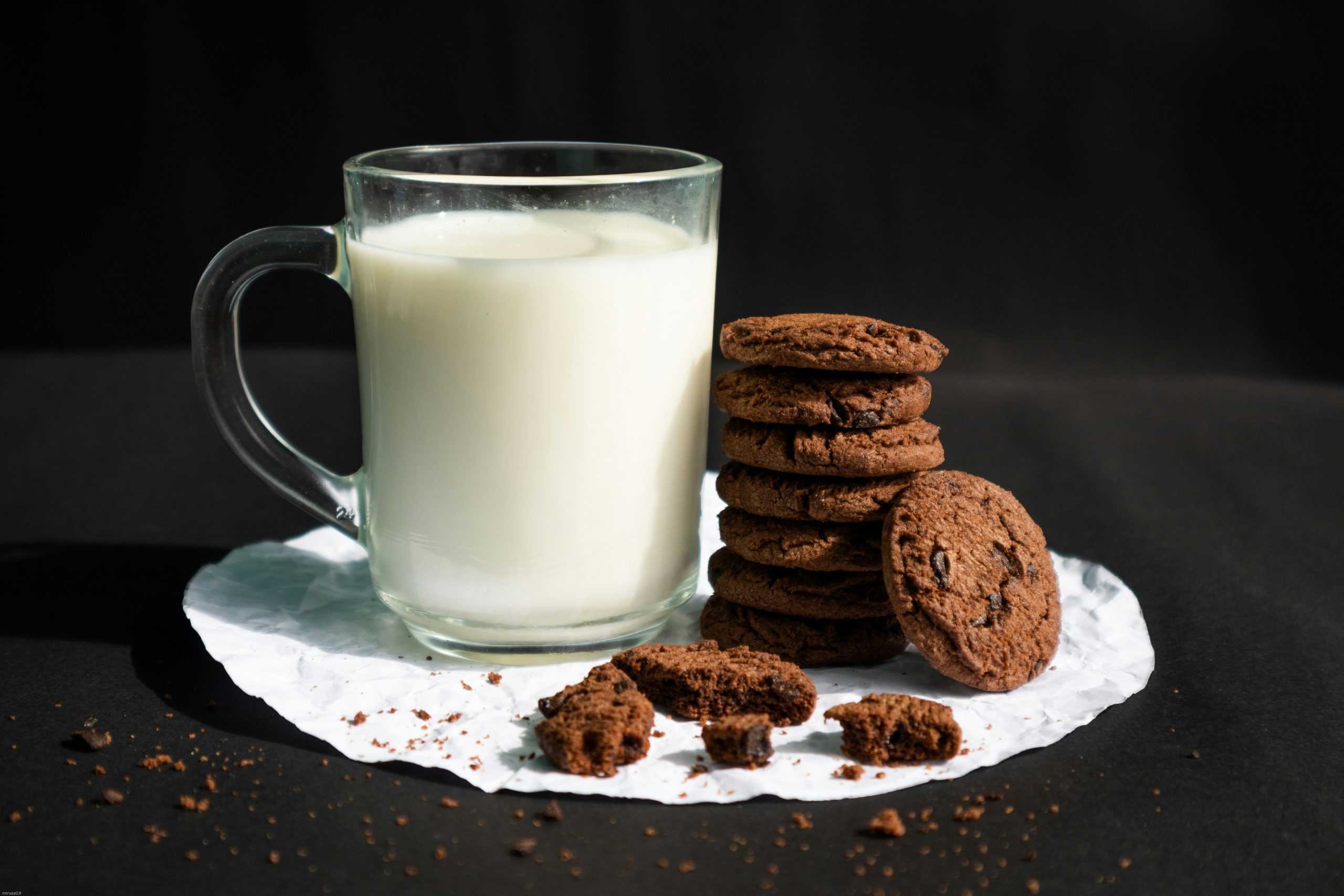Maitland Manning
Calving can be one of the most challenging times of the year: it’s wet and cold, and farmers can be sleep-deprived as they look after their pregnant cows throughout the day and night.
Yet it’s also a positive time: the season has begun, there is the arrival of new calves (your future herd) and milk is beginning to flow.
During these busy calving times with sleep-deprived nights and other stressors chipping away at your resilience, your wellbeing can take a hit.
We all talk about wellbeing, but what is it?
I’m DairyNZ’s farm wellbeing project leader. I describe wellbeing as ‘living in a way that is good for you and others and having the ability to respond to challenges’.
When it comes to understanding wellbeing, I can speak from personal experience. Not long ago my own wellbeing was challenged when stressors became too much.
The Christchurch earthquakes, my wee girl being born with health issues and a busy job wore away at my wellbeing until my unaddressed stress levels developed into anxiety, which began to affect my ability to support my family.
Luckily, I reached out for help and learned what to do to maintain my wellbeing and continue to do so. I keep in regular contact with friends and family, exercise regularly and thoroughly enjoy getting out into the hills to take a break from work and other responsibilities.
One of my roles now at DairyNZ is to talk to our farmers about wellbeing.
I hear all the time that dairy farmers understand that they need to sustain their wellbeing during calving and some have shared some simple tips I would like to share with you today.
Plan for calving
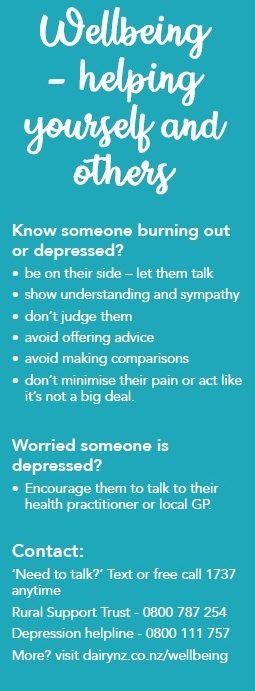 Having a plan is key, and the earlier the better. It helps to make sure the plan is visible to all of your team, so have it somewhere everyone can see it.
Having a plan is key, and the earlier the better. It helps to make sure the plan is visible to all of your team, so have it somewhere everyone can see it.
A good wellbeing plan can include:
- a pre-calving checklist
- a well-stocked calving kit
- a freezer full of slow-cooker meals
- team agreement on who is doing what, and when.
Talk
Regular team meetings can be difficult during calving, but it is possible to catch up with everyone every few days, whether it’s a quick chat at breakfast or after morning milking in the staffroom. A few minutes here and there can make a big difference.
Eat
Nutrition is important. However, healthy, nutritious meals can be a challenge. One farmer I spoke to pre-stocks the freezer with homemade frozen dinners and provides muesli bars and fruit in the staffroom, which doesn’t cost much yet adds a real boost to energy and enthusiasm.
Sleep
Sleep deprivation has been proven to have a negative impact on our ability to concentrate, make decisions and communicate clearly. Sleep is crucial!
Take breaks
An eight-hour day isn’t realistic for most farmers during calving. But you can aim to keep everyone’s day under 12 hours and roster everyone some time off-farm once a fortnight to do something non-farming related, as a chance to recharge.
Wellbeing checklist:
If you notice a number of the following symptoms happening at once, be especially aware. Signs of poor wellbeing in yourself and in others might include:
- continually tired and run down
- often sick with colds, flus, tummy bugs, frequent headaches or minor ills
- constantly irritable
- quick and noticeable weight loss or weight gain
- dependent on caffeine to get through the day (more than four caffeine drinks every day can be a sign)
- frequent arguing with friends, family and work colleagues
- making self-degrading comments e.g. I’m useless, I’m going nowhere, I can’t do anything right
- sudden change in mood, personality or behaviour which lasts for several weeks
- lack of appetite
- prolonged disinterest in jobs or things which were previously engaging and satisfying.
Remember, little things make a big difference to team morale. Simply saying ‘good job’ or ‘thank you’, or making a joke, can go a long way to motivate your team and make them feel valued and appreciated.
For more tips on communicating and managing employees during the busy calving season, visit dairynz.co.nz/people.
- Maitland Manning is DairyNZ farm wellbeing project leader


